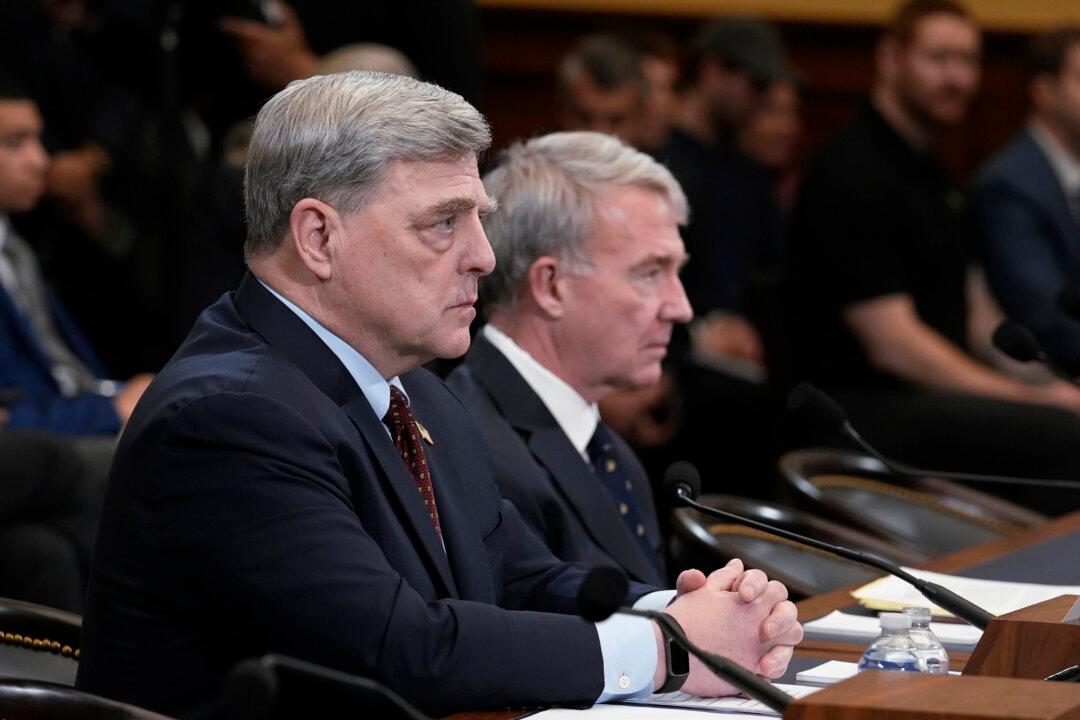Mark Milley, the former head of the Joint Chiefs of Staff, responded on Monday to a social media post written by former President Donald Trump accusing him of committing treason by saying President Trump has the right to say whatever he wants.
Mr. Milley, who is now retired, was questioned by a Democrat lawmaker about the former president’s Truth Social post during a hearing on the U.S. military’s withdrawal from Afghanistan in 2021. In a September 2023 post, President Trump wrote that Mr. Milley’s communications with a Chinese general during his final months in office amount to a “treasonous act” and that in the past, “the punishment would have been death.”





